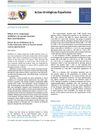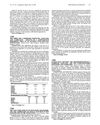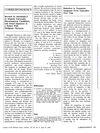 2 citations,
May 2023 in “Plants”
2 citations,
May 2023 in “Plants” Allium hookeri extract may help promote hair growth and protect cells from damage.
 20 citations,
June 2022 in “Molecules”
20 citations,
June 2022 in “Molecules” Thiazole, a sulfur and nitrogen chemical, is useful in creating potential drugs for conditions like seizures, cancer, bacterial infections, tuberculosis, inflammation, malaria, viruses, Alzheimer's, diabetes, and A1-receptor issues.
 72 citations,
April 2008 in “The Journal of urology/The journal of urology”
72 citations,
April 2008 in “The Journal of urology/The journal of urology” Dutasteride and finasteride do not significantly affect bone density, blood fats, or blood production, but slightly lower PSA levels and minimally impact sexual function in healthy young men.
 11 citations,
January 2016 in “The Journal of Sexual Medicine”
11 citations,
January 2016 in “The Journal of Sexual Medicine” Young women with nonclassic congenital adrenal hyperplasia may experience worse sexual function and mild depression compared to healthy women.
10 citations,
January 1997 in “The journal of sex research/The Journal of sex research” Testosterone replacement therapy significantly improved sexual interest and function in HIV+ men.
 5 citations,
June 2020 in “Journal of Endocrinological Investigation”
5 citations,
June 2020 in “Journal of Endocrinological Investigation” Women with congenital adrenal hyperplasia (CAH) have more sexual function issues than those with polycystic ovary syndrome (PCOS), but physical activity can improve sexual functioning in all women.
 75 citations,
February 2016 in “The Journal of Sexual Medicine”
75 citations,
February 2016 in “The Journal of Sexual Medicine” Androgens play a role in female sexual function, and testosterone therapy can help women with low sexual desire, but more research is needed on treatments and long-term safety.
 71 citations,
November 2012 in “Expert Opinion on Drug Safety”
71 citations,
November 2012 in “Expert Opinion on Drug Safety” 5-alpha reductase inhibitors can cause sexual side effects like erectile dysfunction and reduced sexual desire, sometimes lasting after stopping the drug.
 April 2017 in “Actas urológicas españolas”
April 2017 in “Actas urológicas españolas” 5-alpha reductase inhibitors increase the risk of sexual dysfunction in patients treating enlarged prostate but not in those treating hair loss.
 48 citations,
July 2009 in “The Journal of Sexual Medicine”
48 citations,
July 2009 in “The Journal of Sexual Medicine” DHEA did not improve sexual function, well-being, or menopausal symptoms in postmenopausal women with low libido but caused side effects like acne and increased facial hair.
 44 citations,
July 2004 in “Archives of Dermatology”
44 citations,
July 2004 in “Archives of Dermatology” Finasteride for hair loss has minimal impact on sexual function.
 36 citations,
September 2001 in “Journal of The European Academy of Dermatology and Venereology”
36 citations,
September 2001 in “Journal of The European Academy of Dermatology and Venereology” Finasteride doesn't reduce sexual function in people with hair loss.
 11 citations,
April 2018 in “Journal of Dermatology”
11 citations,
April 2018 in “Journal of Dermatology” Dutasteride safely treats hair loss without harming sexual function.
 11 citations,
October 2015 in “Dermatology and therapy”
11 citations,
October 2015 in “Dermatology and therapy” Finasteride doesn't negatively affect sexual function in Indian men with hair loss.
 April 2020 in “Online journal of complementary & alternative medicine”
April 2020 in “Online journal of complementary & alternative medicine” Some medications can help increase sexual desire and function in women.
 February 2005 in “The Journal of Urology”
February 2005 in “The Journal of Urology” Finasteride for hair loss doesn't harm erectile function; weight loss and exercise improve it.
 8 citations,
April 2004 in “The Journal of Urology”
8 citations,
April 2004 in “The Journal of Urology” Doxazosin and finasteride negatively affect sexual function in men with BPH.
 3 citations,
January 2011 in “Female pelvic medicine & reconstructive surgery”
3 citations,
January 2011 in “Female pelvic medicine & reconstructive surgery” Hormones significantly affect women's sexual function, and more research is needed to improve treatments for sexual dysfunction with minimal side effects.
 October 2017 in “The Journal of Urology”
October 2017 in “The Journal of Urology” 5α-Reductase inhibitors can negatively impact sexual function.
 11 citations,
August 2014 in “Current Urology Reports”
11 citations,
August 2014 in “Current Urology Reports” Medications for enlarged prostate can cause sexual side effects like reduced libido, erectile dysfunction, and ejaculatory problems.
 1 citations,
July 2015 in “Cambridge University Press eBooks”
1 citations,
July 2015 in “Cambridge University Press eBooks” Testosterone therapy can improve sexual function in women but long-term safety is unclear.
 46 citations,
January 2008 in “Climacteric”
46 citations,
January 2008 in “Climacteric” Testosterone therapy can help improve sexual desire and function in postmenopausal women but may cause side effects and is not FDA-approved for this use.
4 citations,
February 2009 in “Obstetrical & Gynecological Survey” Testosterone patches can modestly improve sexual function in postmenopausal women not on estrogen therapy.
 March 2023 in “Zdorov'â čolovìka”
March 2023 in “Zdorov'â čolovìka” Certain medications can reduce sexual desire and function, especially in women.
 February 2010 in “Journal of The American Academy of Dermatology”
February 2010 in “Journal of The American Academy of Dermatology” Ustekinumab significantly improved sexual function and quality of life for people with moderate to severe psoriasis.
 9 citations,
April 1993 in “Journal of the National Cancer Institute”
9 citations,
April 1993 in “Journal of the National Cancer Institute” Interleukin-2 treatment improved hair growth, sexual function, and reduced fungal infection in a patient with thymoma-related symptoms.
 April 2018 in “The Journal of Urology”
April 2018 in “The Journal of Urology” Dutasteride use can lead to a stable decline in sexual function that is not affected by age or prostate size.
 2 citations,
March 2004 in “Reviews in Gynaecological Practice”
2 citations,
March 2004 in “Reviews in Gynaecological Practice” Hormonal changes and psychological issues can cause sexual dysfunction in postmenopausal women. Behavioral therapy is recommended first, with hormone replacement helping some symptoms but not libido. Testosterone can improve libido, but its effects on overall sexual function are unclear. Emotional and relationship issues should be addressed before using medication, and the benefits and risks of testosterone supplementation should be considered.
 1 citations,
January 2023 in “International journal of urology”
1 citations,
January 2023 in “International journal of urology” Low zinc levels are linked to low testosterone but not to sexual problems.
 July 2017 in “Indian journal of sexually transmitted diseases and AIDS”
July 2017 in “Indian journal of sexually transmitted diseases and AIDS” Finasteride, a hair loss drug, can cause sexual side effects like erectile dysfunction in 2.1%-3.8% of users, but these usually go away with time or if the drug is stopped. Despite this, its impact on sexual function is minimal for most men.




























